Oversight actions in this article have been identified by the Brookings House Oversight Tracker.
For the last eleven months, the Trump administration has been the target of House Democrats’ efforts to investigate improper activity by members of the executive branch. Major storylines have focused on high-profile events such as Michael Cohen’s Oversight and Reform Committee testimony, the Judiciary Committee’s 81-document request announcement on threats against the rule of law, and the current impeachment inquiry.
While these investigations into individual misconduct and the accompanying responses to executive stonewalling have taken center stage, inquiries related to administration policies and priorities have received significantly less attention. Many committees have worked together to collaborate on oversight efforts that are not reaching the headlines. Here, we highlight two oversight investigations by House committees that have focused on policy implementation by the executive branch.
Disaster relief
In 2017, natural disasters were responsible for billions of dollars of damage across the United States. To mitigate the effects of the devastating storms and wildfires, Congress passed three supplemental appropriations bills to assist with relief efforts. The spending was distributed across government agencies, giving several House committees oversight authority. During the 116th Congress, House Democrats have spent time investigating the Trump administration’s response to the 2017 disasters.
It is important to recognize that efforts to oversee the administration’s responses to the 2017 disasters did not just begin in 2019. While in the minority, Democrats on the then-named Committee on Oversight and Governmental Reform sent multiple requests to then-chairman Trey Gowdy (R-S.C.), asking him to issue subpoenas for documents related to hurricane relief efforts in Puerto Rico and the U.S. Virgin Islands. Rep. Gowdy and then-ranking member Elijah Cummings (D-Md.) previously sent a bipartisan request to the Department of Defense for communications related to hurricane relief. Officials, however, failed to provide any requested documentation.
In May 2019, nearly two years after the initial bipartisan request, all the Democratic members of the Oversight and Reform Committee sent a group of letters to officials asking for the same documents. Even more recently, then-Chairman Cummings sent a reminder letter in early July—finally declaring that if the administration did not turn over the documents, the committee would have to obtain them through “alternative means.” Currently, there is no publicly available response from the White House to the July letter from the committee.
Other committees that have invested time into overseeing the response to 2017 disasters include the Financial Services, Homeland Security, Natural Resources, and Appropriations Committees. In March, the Financial Services Subcommittee on Oversight and Investigations held a hearing on “the Administration of Disaster Recovery Funds.” Prior to that, Chairman Bennie Thompson (D-Miss.) of the Homeland Security Committee and Chairman Raul Grijalva (D-Ariz.) of the Natural Resources Committee coauthored a letter with Rep. Nydia Velazquez (D-N.Y.) inquiring into why the Department of Housing and Urban and Development (HUD) had not yet dispersed $20 billion dollars in appropriated funding to rebuild infrastructure in Puerto Rico. In mid-October, HUD officials testified to the Appropriations Subcommittee on Transportation, Housing and Urban Development, and Related Agencies that less than two percent of the funds have been spent.
Student loans
As of 2018, college students in the United States had accumulated over $1.4 trillion in student loan debt. House Democrats have focused their oversight efforts on the Department of Education’s passive enforcement of loan servicer violations and have given some attention to problems with loan forgiveness programs. Since January, House committees have sent a total of eleven letters and have held three hearings exploring the Department of Education’s execution of the public service loan forgiveness program and oversight over predatory loan servicers.
The chairs of three committees—Education and Labor, Financial Services, and Oversight and Reform—collaborated to send a series of five letters to a broad range of federal agencies and loan providers. In the letters, the chairs expressed concern with Secretary of Education Betsy DeVos shielding private loan providers from federal oversight and requested various documents including financial statements and company contracts with the Department of Education.
The department has yet to respond publicly to these letters. In June, the Department of Education responded to a request for loan servicer data from Senator Patty Murray (D-Wash.) by rejecting the request, citing the discretion of federal agencies to withhold third party data. In another act of cross-committee cooperation, the Appropriations Subcommittee on Labor, Health and Human Services, Education, and Related Agencies and the Oversight and Reform Subcommittee on Economic and Consumer Policy both conducted hearings that examined predatory lending practices by loan servicers.
While other committees have played a role, most oversight actions in this area have involved the Committee on Education and Labor or one of its subcommittees. In March, the Subcommittee on Higher Education and Workforce Investment sent a letter cosigned by Senator Patty Murray (D-Wash.) to Secretary DeVos requesting information regarding the department‘s mismanagement of the Federal Student Loan Program. Later that month, the full committee sent another letter to Secretary DeVos expressing discontent with the Department of Education’s noncompliance to past inquiries.
Following public outcry over the ineffectively run public loan forgiveness program, House Democrats held a hearing on the issue in the Subcommittee on Higher Education and Workforce Investment. It was chaired by Congresswoman Susan Davis (D-Calif.), who voiced concern about the incomprehensive information about the program and disorganized payment system which has resulted in a 99.6 percent denial rate of applicants. Teachers and federal employees who were denied loan forgiveness as well as education policy scholars from think-tanks testified during the hearing.
On October 28th, Congressman Bobby Scott (D-Va.), Chairman of the House Education and Labor Committee, sent Secretary DeVos a letter inviting her to appear in front of the committee to explain the department’s decision to not implement the Obama-era borrower defense claim in any of the 60,000 claims from defrauded Corinthian College students. In response to surmounting pressure and a federal lawsuit over the Department of Education’s handling of the sudden collapse of a group of private colleges owned by the company Dream Smart, Secretary DeVos has announced she will cancel student loans for 1,500 borrowers who attended schools owned by Dream Smart.
Conclusion
These investigations are just two examples of how cross-committee collaborative oversight can be conducted even when an issue is not grabbing major headlines. To date, 237 hearings held, and 498 letters sent by House committees have involved oversight of the executive branch. Unfortunately, executive branch stalling can impede attempts to investigate problems in federal government. While both investigations have involved lots of committee action, cooperation from the Trump administration remains low. As the 116th Congress progresses, expect Democrats to advance through the oversight process to pressure the Trump administration into releasing more information.
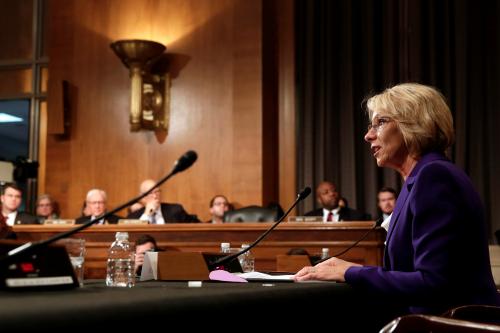
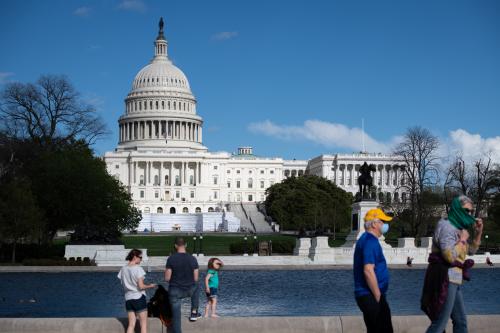
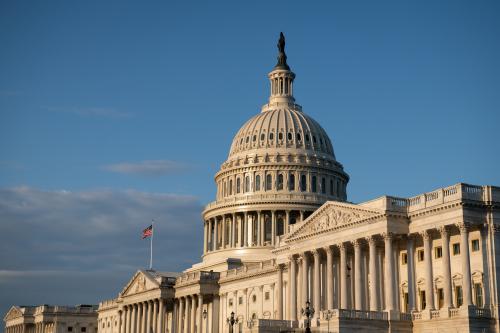
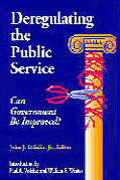
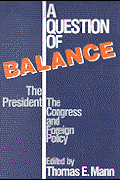
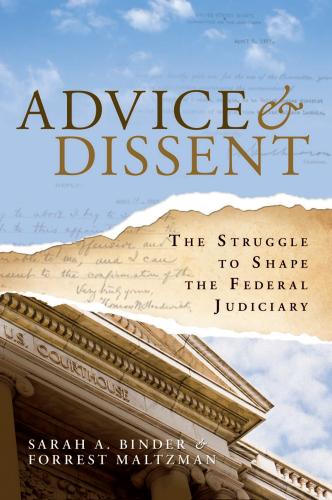





Commentary
Congress’s oversight mandate goes beyond impeachment
November 22, 2019